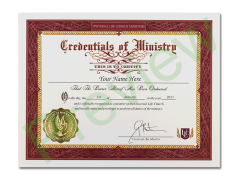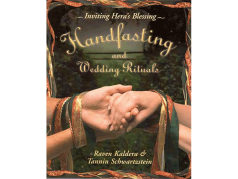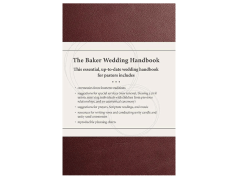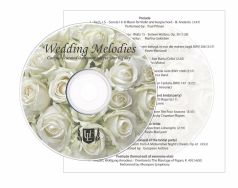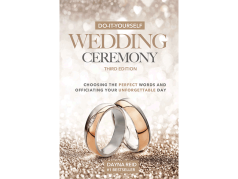What is a Minister's License

A minister's license is a formal recognition and authorization for an individual to perform specific religious duties and functions. These duties often include officiating weddings, conducting funerals, leading worship services, providing pastoral care, and performing other sacraments or rituals as prescribed by their faith tradition. The process and requirements for obtaining a minister's license vary depending on the religious denomination, the specific role of the minister, and the legal requirements of the state or country in which the minister will be serving. Here is a comprehensive overview of what a minister's license entails.
The Purpose of a Minister's License
The primary purpose of a minister's license is to legitimize the individual's role as a religious leader within a specific faith community. It serves several important functions:
- Authorization: It formally authorizes the individual to perform religious ceremonies and rites, such as weddings, baptisms, and funerals, which may have legal implications.
- Recognition: It provides recognition by the religious community and often by the state or country, affirming that the individual has met the necessary qualifications and standards to serve in a ministerial capacity.
- Accountability: It establishes a framework for accountability, ensuring that the minister adheres to the ethical and professional standards set by their denomination or religious organization.
- Legal Compliance: It ensures that the minister complies with any legal requirements for performing certain functions, such as officiating weddings, which may require registration with the state or local government.
Types of Ministerial Licenses
There are different types of ministerial licenses, depending on the denomination, the role of the minister, and the level of responsibility. These can include:
- Ordination: This is the most comprehensive form of ministerial licensing. Ordained ministers have completed extensive education and training, typically through a seminary or theological school, and have been formally consecrated by their religious organization. They are authorized to perform all the functions of ministry, including administering sacraments, preaching, and providing pastoral care.
- Licensure: Some denominations offer licensure as a step before ordination or as a separate track for lay ministers. Licensed ministers may have completed some education and training but may not have the same level of authority or responsibility as ordained ministers. They can perform certain functions, such as preaching and leading worship, but may not be authorized to administer all sacraments.
- Commissioning: This is often used for specialized ministries, such as chaplaincy, youth ministry, or missionary work. Commissioned ministers may have specific training and authorization for their particular area of service.
- Temporary or Provisional Licenses: Some denominations issue temporary or provisional licenses to individuals who are in the process of completing their education and training. These licenses allow individuals to perform certain ministerial functions under supervision while they complete the requirements for full licensure or ordination.
The Process of Obtaining a Minister's License
The process for obtaining a minister's license varies by denomination and religious organization. However, there are common steps involved:
- Discernment: The first step is discerning a call to ministry. This involves prayer, reflection, and often seeking the counsel of trusted spiritual advisors or mentors. It is important to have a clear sense of calling and commitment to serve in a ministerial role.
- Education and Training: Most denominations require some level of education and training for licensure or ordination. This can include theological education at a seminary or Bible college, practical ministry training, and supervised ministry experience. The specific requirements vary widely, from formal degree programs to more informal training and mentorship.
- Application: : Once the educational and training requirements are met, the individual must apply for licensure or ordination through their denomination or religious organization. This typically involves completing an application, providing references, and submitting documentation of education and training.
- Assessment: Many denominations require candidates to undergo an assessment process, which can include interviews, written examinations, and evaluations of their theological knowledge, pastoral skills, and personal character.
- Approval and Licensing: If the candidate successfully completes the assessment process, they will be approved for licensure or ordination. This is often marked by a formal ceremony, such as an ordination service, where the individual is publicly recognized and commissioned for ministry. They will receive a certificate or other documentation of their licensure.
One simple way to obtain a legal minister’s license, if one feels so-called, is to become ordained online.

Legal Considerations and Requirements
In addition to meeting the requirements of their denomination or religious organization, ministers must also comply with legal requirements for performing certain functions, particularly officiating weddings. The specific legal requirements vary by state and country but may include:
- Registration: In many jurisdictions, ministers must register with the state or local government to be authorized to perform weddings. This often involves providing proof of ordination or licensure and completing any necessary paperwork.
- Compliance with Marriage Laws: Ministers must ensure that they comply with all legal requirements for performing weddings, such as obtaining the necessary marriage license, following the required procedures, and properly completing and filing the marriage certificate.
- Criminal Background Check: Some states and religious organizations require a criminal background check as part of the licensing or ordination process to ensure the suitability of the candidate for ministry.
- Continuing Education and Renewal: Some denominations and states require ministers to engage in continuing education and periodically renew their licensure to maintain their authorization to perform certain functions.
Benefits of a Minister's License
Obtaining a minister's license offers several benefits for individuals and the communities they serve:
- Credibility and Recognition: A minister's license provides credibility and recognition, both within the religious community and in the broader society. It signifies that the individual has met the necessary qualifications and standards to serve as a minister.
- Legal Authority: It grants the legal authority to perform certain functions, such as officiating weddings, which can have significant personal and legal implications for those involved.
- Professional Development: The process of obtaining a minister's license often involves education, training, and assessment, which contribute to the professional development and effectiveness of the minister.
- Support and Accountability: Being licensed or ordained provides access to support and accountability structures within the denomination or religious organization. This can include mentorship, continuing education, and resources for personal and professional growth.
A minister's license is a vital credential for those called to serve in religious leadership. It provides authorization, recognition, and accountability, ensuring that ministers are equipped to fulfill their responsibilities and meet the needs of their communities. The process of obtaining a minister's license involves discernment, education, training, and compliance with both religious and legal requirements. By obtaining and maintaining a minister's license, individuals can effectively serve their faith communities and provide meaningful spiritual guidance and support.
